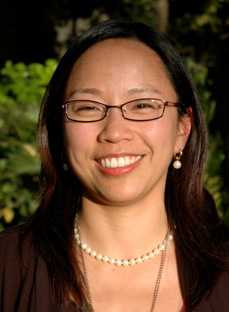
Name: Lillian S Kao, MD, MS
Title: Associate Professor of Surgery
Institution: University of Texas Health Science Center at Houston
Clinical Specialty: General Surgery and Critical Care
Research Interest: SSI prevention; Necrotizing soft tissue infections
Webpage: http://www.uth.tmc.edu/
Institution during SIS Fellowship: University of Texas Health Science Center at Houston
SIS Fellowship Mentor: David Mercer, MD
SIS Fellowshp Project Title: Studies on Hyperglycemia in Surgical Infections
Fellowship Years: 2005-2006
How did you hear about the SIS Fellowship? From my mentor, Dr. David Mercer.
Who was the main influence on your choice to become an academic surgeon? Dr. David Mercer, who is now the Department Chair of Surgery, was the main influence on my choice to become an academic surgeon. He provided me with the ideal job, career plan, and resources to achieve academic success.
How did you get involved in surgical infections research? Working at a county hospital affiliated with an academic medical center, I see a lot of both infections requiring surgical intervention and infections as a result of surgical interventions. I quickly realized the significant impact that could be made on patient outcomes by performing high-quality research on surgical infections.
Can you describe how the fellowship helped your career? The fellowship provided me funding to generate preliminary data to obtain and NIH K23 career development award.
Have you continued this line of research? The SIS Fellowship Grant had proposed a randomized trial in critically-ill patients of two glycemic control regimens with necrotizing soft tissue infections (NSTIs). The trial has taken longer than the duration of the grant to enroll patients, but currently the study has become a multi-center trial to finish enrollment. Also, other projects have stemmed from the trial including a multi-center NSTI registry and a study modeling glycemic variability in critically-ill septic and trauma patients. Lastly, other questions relating to glycemic control and surgical infections in non-critically ill patients are under investigation.
What would you tell medical students who are interested in surgery? Surgery is an extremely rewarding field which is exciting, challenging, and satisfying. I would without a doubt choose to become a surgeon again if given a choice.
What suggestions would you give to residents who would like to pursue research projects?
- Pursue additional training, whether it be a Master’s Degree, apprenticeship in basic science laboratory, etc.
- Study a topic that you feel passionate about. Have fun with your research!
- Apply for funding and do not despair if you are not always successful. Persevere and you will succeed.
- Building a research career takes time, patience, and dedication, and it’s worth it. Set achievable goals.
- Funding options go beyond the NIH – surgical societies, foundations, industry-sponsored trials to gain experience in clinical trials or investigator-initiated industry sponsored trials, collaborators, military (DOD), etc.
How did you first get involved in the Surgical Infection Society? Presented a poster in my first year as an academic surgeon.